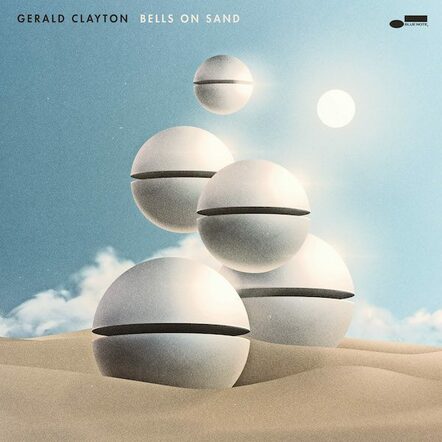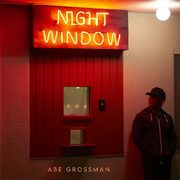New York, NY (Top40 Charts) Six-time GRAMMY nominated artist Gerald Clayton returns with Bells On Sand, his ravishing second album for Blue Note Records/Universal Music, which will be released April 1st on vinyl, CD, and digital formats. The album explores the impact and abstraction of time over eleven tracks of fresh orchestration and original music with contributions from mentor Charles
Lloyd on saxophone, father John Clayton on bass, longtime friend and peer Justin Brown on drums, and new collaborator MARO on vocals.
"Each musician on the record represents a different aspect of the axis of time and its shifting sands," says the acclaimed pianist-composer. "My father and Charles Lloyd, who has been a mentor figure to me, reflect new permutations of my past, and the lineage of elders who have shaped my development; Justin Brown, being my contemporary and musical brother, represents my present; and MARO represents the future—she is part of the next generation, and points to a brand new collaboration."
Unadorned intimacy shapes the music. Clayton's desire to share more of himself with listeners and fellow artists wields heady influence over his musical choices and his thoughtful curation of the entire album. But most striking is his ability to create quiet chambers for all four artists to be themselves. Bells On Sand opens in pensive resonance with "Water's Edge." The slow-peeling composition first spotlights Clayton's relationship with John's arco, tapered and doleful, before Brown transforms the duo into a trio.
"By the water, I experienced subtle environmental shifts," he says. "Songs I would sing, play or write were but an expression of a particular shape in the sand at that moment. Any meaning behind what I created came from viewing that creation over a temporal landscape. A song felt a certain way on a certain day, and the next day would feel and function completely differently."
"I hope these reflections encourage people to step back and recognize that our testaments—songs, stories, intentions—lay atop an ever-shifting landscape," says Clayton. "To look at things from this zoomed-out perspective might allow for a union between past, present, and future. It might allow us to embrace the totality of our life experience. That we may consider the lessons from our past when living the present moment in a way that serves the future."
























